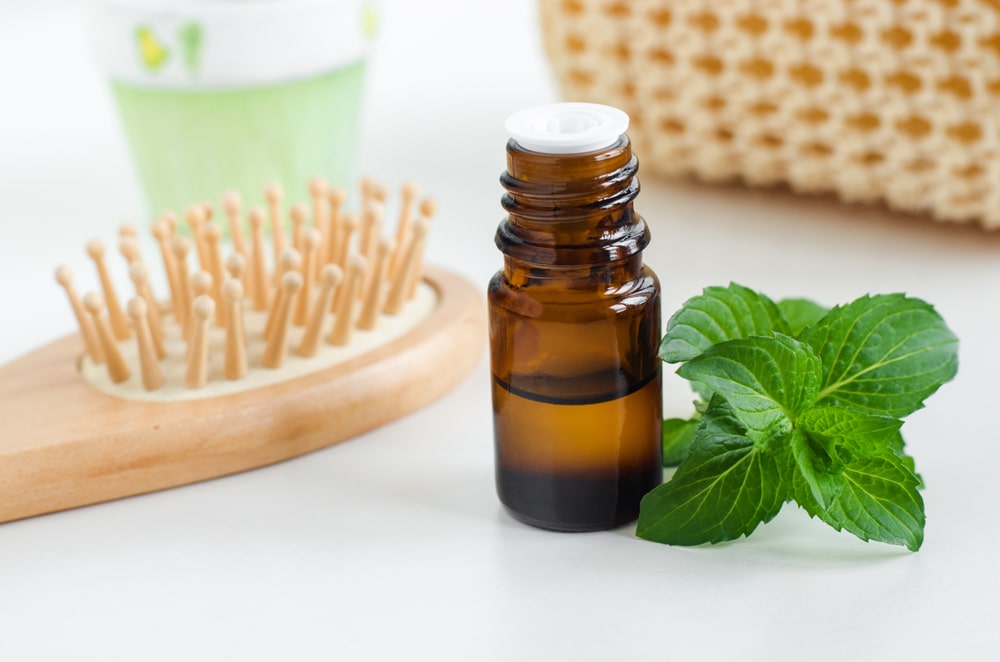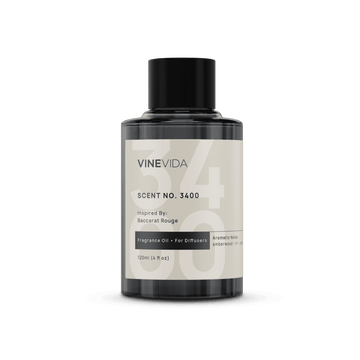Hair loss can be a devastating problem for men and women alike. However, it is more prevalent in males, with almost 50% of men experiencing pattern baldness in their lifetime, and men are more likely to go through hair loss. So, is peppermint oil good for your hair? Short answer: Yes! A study showed that peppermint oil could promote hair growth with surprising effectiveness. This isn’t the only essential oil that can benefit you and your hair.
In this article, we’ll discuss which oils are good for your hair and give you a few recipes for when you begin to fret about your follicles!
Some Clarification Regarding Peppermint Oil and Your Hair
There’s scientific evidence that peppermint oil could benefit your hair growth. A study on mice [Oh, 2014] suggests that peppermint oil could be more effective than a popular hair loss treatment sold worldwide. This study was conducted by scientists from Daeduk College and Keimyung university in South Korea and tested the effects of a 3% peppermint oil solution. They compared it with the effects of Minoxidil, the active ingredient in many hair-loss treatments, and they found that peppermint oil had a greater effect on hair growth than Minoxidil.
This is thrilling stuff, isn’t it, but before we all wet our knickers in excitement, it’s important to note again that the study was done on mice. There are not yet any similar documented clinical studies done on humans; scientists can’t say peppermint oil will have the same effect on people as it does on mice. You might then wonder why scientists use mice for these experimental studies if it doesn’t mean we can transfer the study's results directly to humans.
There are a few reasons scientists use rodents such as rats or mice for experiments. One big reason is that these animals are genetically similar to humans - they’re mammals and can have genetic changes through one generation. However, different species, such as mice and humans, are also different. (Most humans don’t have a tail, for one.) This means that what works for mice may not even be the same for rats.
An example is that rats with a specific chemical deficiency (low levels of a neurotransmitter called anandamide) will show strong signs of depression. However, researchers found that if mice had the same deficiency, they would be perfectly happy with no psychological issues - unlike rats.
This means that, even though there’s been a study done with mice, we can’t accurately predict that it will produce the same effect for humans. That doesn’t mean we’re not excited at the possibility suggested by this study, though!
Also Read: How To Dilute Peppermint Oil
Essential Oil Safety for Peppermint Oil
Essential oils shouldn't be applied to open sores, so if you're using peppermint oil in your hair routine, first check your scalp. You can do this by carefully combing your scalp with your fingers and feeling raw or cracked patches, or asking a friend to help.
Essential oils should always be diluted if you're applying them to your skin, and should be much lower for children than adults. We recommend up to 3% for adults and only 0.25% for children. We'd recommend you never use essential oils for children under 6 months unless it is an emergency.
We recommend that you don’t use this oil during pregnancy or breastfeeding.
We’d also strongly advise anybody with a GP6D deficiency to avoid this oil.
Also Read: What Is Peppermint Oil Good For?
Other Essential Oils Good for Hair
Now that we’ve covered peppermint, let’s go over some other oils that would give your hair some rejuvenation.
1. Cedarwood Essential Oil
Cedarwood oil can benefit you greatly if you suffer from overly oily hair or scalp. This astringent essential oil will contract your scalp. This removes excess oils from your scalp and hair and reduces the “greasy” feeling by preventing your sebaceous glands from producing too much sebum.
It may seem counterintuitive to use essential oils diluted in even more carrier oils to try and help with oily hair, but remember, cedarwood's astringent properties can help support your sebaceous glands to achieve a natural balance in oil production.
As well as reducing oiliness, cedarwood can help with an itchy scalp. When you have an itchy scalp, scratching it to give some relief will lead to inflammation. The issue is that inflammation is often the cause behind itching, meaning you get stuck in a cycle. Cedarwood’s astringent properties will help break this painful cycle you can easily get stuck in. We’ll give you a great recipe for this later in the article.
Safety: As with any essential oil, we’d recommend you avoid use within the first 16 weeks of pregnancy, but cedarwood would be safe to use after that period. As well as this, cedarwood oil can pass through into breast milk, and although it’s considered safe, if your baby becomes reluctant to feed, stop using it for a few days to ensure it’s not the oil affecting their palate.
Also Read: Cedarwood Essential Oil For Hair
2. Patchouli Essential Oil
Patchouli is a great oil for your hair and scalp, especially if you suffer from excessive dandruff. "Ooze confidence in interviews, knowing that the designer suit jacket is flake-free.
Feel great about leaving your hair down to compliment that little black dress. This is where patchouli comes in. It’s been historically used for dry skin, so adding drops of patchouli essential oil in a hair massage can help give your scalp some extra moisture.
Safety Regarding Patchouli
As with cedarwood, this patchouli essential oil is safe after the first 16 weeks of pregnancy. Patchouli is also considered safe for breastfeeding, but as with cedarwood, should your baby become reluctant, cease use for at least a few days to ensure the oil isn’t affecting their palate.
Also Read: What Is Patchouli Oil Good For?
3. Rosemary Essential Oil
Rosemary is a brilliant herb for cooking, but the essential oil derived from this plant can also be incredibly beneficial for your hair care routine. Statistics say that roughly 50% of men will go through male pattern baldness at some point in their lifetime, and while males are more likely to experience balding, both men and women can experience the issue. While some are okay with this, others may want to try to preserve their locks. Luckily, rosemary essential oil can help here. A study on human patients showed that rosemary oil could be as effective as a commonly prescribed hair-loss treatment. [Pahani, 2015] This study gives us great excitement in recommending that you incorporate rosemary oil into your hair routine if you're worried about hair loss.
Rosemary oil also has astringent properties, which means that, like cedarwood, it can help support a natural sebaceous balance on your scalp.
Safety Regarding Rosemary
Rosemary can be a rather unpredictable oil, so use it with care. It has neurotoxic tendencies, so we would avoid using this oil if you suffer from epilepsy or delusional problems such as schizophrenia or psychosis. Not suitable for use during the first 16 weeks of pregnancy.
4. Argan Oil
Argan oil isn’t an essential oil but a carrier oil, which means you can use it to dilute essential oils. However, argan oil also brings its benefits! It’s full of vitamin E, which helps strengthen your hair, making it less brittle, and helps protect it against damage from heated hair tools such as rollers or straighteners.
Argan oil is now widely used in commercial hair-care products, marketed toward people with dry, frizzy hair, but these products can often contain so little argan oil that the benefits are practically null. This is why we’d advise that you use pure argan oil, which means that you get the full effect and don’t need to use as much of it as you would other commercial products to get the same effect.
Also, if you've curly hair, you've likely noticed how dry or frizzy it can be. This oil can be a great way to help reduce the frizziness and condition your hair after your washing routine!
Safety Regarding Argan Oil
Argan oil is a nut oil and is best avoided by people who are allergic.
Also Read: Is Lavender Oil Good For Hair?
Some Handy Recipes
1. Morning Hair Masque for Oily Scalp or Hair
- 1 tbsp Jojoba Carrier Oil (Simmondsia Chinensis)
- 3 drops Cedarwood Essential Oil (Cedrus Deodara)
- 2 drops Rosemary Essential Oil (Rosemarinus Officinalis)
- 1 drop Lavender Essential Oil (Lavandula Officinalis)
Method of Use: Massage into the scalp after cleansing your hair and gently towel-drying.
Safety: Not suitable for use on children, during pregnancy, or breastfeeding.
2. Massage Oil for Hair Loss
- 1 tbsp Jojoba Carrier Oil (Simmondsia Chinensis)
- 4 drops of Rosemary Essential Oil (Rosemarinus Officinalis)
- 1 drop Bergamot Essential Oil (Citrus Bergamia)
- 2 drops Peppermint Essential Oil (Mentha Piperita)
Method of Use: Massage into the scalp after washing hair, leave to absorb.
Safety: Not suitable during the first 16 weeks of pregnancy. Choose a different oil from rosemary if you suffer from epilepsy or any kind of psychosis or delusory condition.
Note: Using this recipe in the evening may result in poor sleep. There are very invigorating oils. Try to use it in the morning.
3. Hair Masque for Kids’ Frizzy Hair
- 2 tbsp Argan Carrier Oil (Argania Spinosa)
- 1 drop Lavender Essential Oil (Lavandula angustifolia)
- 3 drops Patchouli Essential Oil (Pogostemon cablin)
- 2 drops Geranium essential Oil (Pelargonium graveolens)
Method of Use: Massage into the scalp, and comb gently through the hair after washing.
Safety: Not suitable in the first 16 weeks of pregnancy. Argan oil may be an allergen for some; please perform a spot test as described earlier in the article.
Conclusion
While there have been studies done with animals to determine if Peppermint oil is good for your hair, we’d still personally reach for other essential oils first to promote hair growth, a healthy scalp, and help reduce dry, frizzy hair. Peppermint oil won’t damage your hair, but it won’t be helpful to your sleep - especially for those who prefer to perform their hair routine in the evening.



















